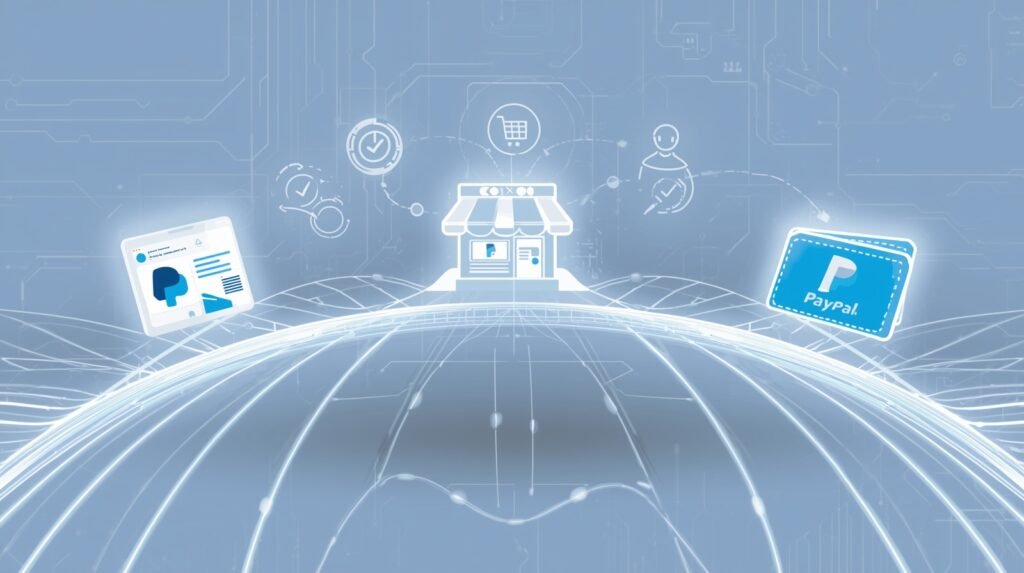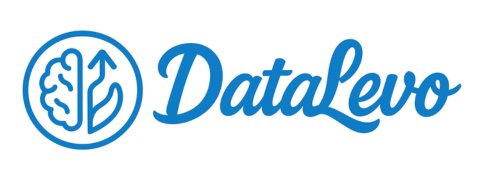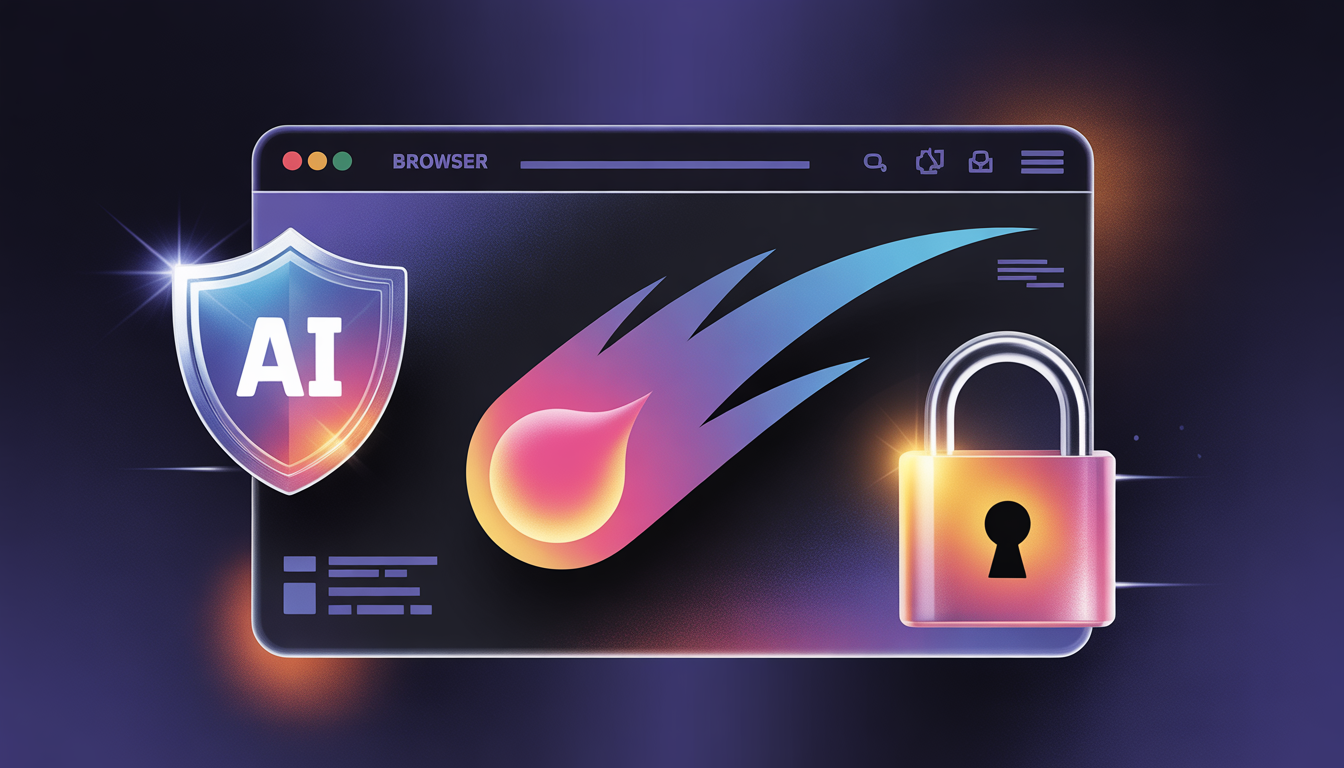PayPal struck a groundbreaking deal with OpenAI on October 28, 2025, making it the first payment wallet integrated directly into ChatGPT. The partnership marks a major shift in how people will shop online starting in 2026.
The announcement sent PayPal’s stock soaring 15% in premarket trading, reaching above $80—the highest level since February. By market close on October 28, shares settled at $76.19, still representing significant gains for investors who had watched the stock struggle earlier in the year.
From Chat to Checkout in Seconds
The integration centers on OpenAI’s Instant Checkout feature, which now includes PayPal’s digital wallet. More than 700 million people use ChatGPT every week, and over 400 million rely on PayPal for online shopping. This partnership connects both massive user bases in an unprecedented way.
“By partnering with OpenAI and adopting the Agentic Commerce Protocol, PayPal will power payments and commerce experiences that help people go from chat to checkout in just a few taps for our joint customer bases,” said Alex Chriss, President and CEO of PayPal.
The system works through conversational AI. Users describe what they need—perhaps “eco-friendly running shoes under $100” or “birthday gift for a ceramics lover”—and ChatGPT presents relevant products. When users find something they want, they tap “Buy,” review shipping and payment details, and complete the purchase without leaving the chat interface.
What Makes This Different From Traditional Online Shopping
Traditional e-commerce requires multiple steps. Shoppers browse different websites, compare products across tabs, add items to carts, fill out checkout forms, and enter payment information repeatedly. The process typically takes 4 to 8 minutes per purchase. ChatGPT’s Instant Checkout cuts this down to 30-90 seconds. The AI platform remembers shipping addresses and payment preferences for returning users. It handles product discovery, comparison, and transaction completion all in one conversation.
PayPal brings crucial elements to this experience:
- Multiple payment options – Users can pay with bank accounts, stored balances, credit cards, or debit cards
- Buyer and seller protection – The same fraud protections PayPal offers on its main platform
- Post-purchase services – Package tracking, dispute resolution, and customer support
- Merchant verification – All sellers are verified through PayPal’s network, reducing fraud risk
The Agentic Commerce Protocol Changes Everything

PayPal is adopting the Agentic Commerce Protocol (ACP), an open-source standard that OpenAI developed with payment processor Stripe. This protocol allows AI agents to act on behalf of users, conducting research, comparing options, and completing transactions autonomously. “This represents a completely new approach to shopping,” Chriss told CNBC. “It’s difficult to envision that agentic commerce won’t play a significant role in the future.”
The protocol works as a bridge between AI platforms, merchants, and payment systems. ChatGPT acts as a digital personal shopper, securely passing information between users and merchants. The AI doesn’t store sensitive payment data—it simply facilitates the connection. For merchants, the benefits are substantial. They don’t need to build separate integrations with OpenAI. PayPal handles merchant routing, payment validation, and transaction orchestration behind the scenes. This means millions of small businesses and major brands can sell through ChatGPT without additional technical work.
Tens of Millions of Merchants Coming to ChatGPT
Starting in 2026, PayPal will connect its entire global merchant network to ChatGPT through its ACP Server. Product catalogs from businesses across multiple categories will become discoverable in the AI platform:
- Fashion and apparel
- Beauty products
- Home improvement items
- Electronics
- And more categories are rolling out progressively
PayPal processes payments for tens of millions of merchants worldwide. This partnership creates what may become one of the largest AI shopping marketplaces, where conversations naturally lead to commerce. The company is also providing technology to handle card payments through a separate delegated payments API. This gives merchants flexibility in how they process transactions while maintaining the seamless ChatGPT experience for shoppers.
PayPal’s Strong Quarter Fuels Confidence
The ChatGPT announcement came the same day PayPal reported third-quarter earnings that exceeded Wall Street expectations. The company posted $8.4 billion in revenue, up 7% year-over-year. Transaction margin dollars rose 6% to $3.9 billion. More significantly, PayPal announced its first-ever quarterly dividend of $0.14 per share after 27 years as a public company. The move signals management’s confidence in long-term profitability and cash generation capabilities. PayPal also raised its full-year guidance, now expecting adjusted earnings per share between $5.35 and $5.40—an increase from the previous forecast of $5.15 to $5.30. The company projects transaction margin dollar growth of 6% to 7% for 2025, excluding interest on customer balances.
The strong financial performance provides a foundation for the massive technology investments required to integrate with AI platforms like ChatGPT.
Racing to Dominate AI Shopping
PayPal isn’t putting all its eggs in one basket. The company recently signed similar deals with Google and AI search platform Perplexity to enable instant payments across multiple AI ecosystems. This multi-platform strategy positions PayPal as the foundational payment layer for agentic commerce. While tech giants compete to own the consumer experience, PayPal is building neutral infrastructure that works everywhere.
“I believe we are the only player at scale globally that’s ubiquitous and neutral, that doesn’t lock you into a device or lock you into an ecosystem,” Chriss said at PayPal Developer Days earlier this year. The company’s two-sided network—connecting both merchants and consumers without tying users to specific hardware or closed ecosystems—gives it unique leverage as shopping moves into AI environments.
OpenAI’s Expanding Commerce Ambitions
For OpenAI, the PayPal partnership represents another major step in transforming ChatGPT from a conversational AI into a comprehensive commerce platform. The company previously integrated Stripe’s Link service and announced deals with Shopify, Etsy, and Walmart. PayPal’s integration offers advantages that other payment services can’t match. Unlike Stripe’s Link, which lacks the ability to hold funds and doesn’t offer a consumer mobile application, PayPal operates as a complete digital wallet with full banking capabilities. The company serves as both a payment processor and a trusted intermediary, handling disputes, chargebacks, and fraud protection for transactions that flow through ChatGPT.
What This Means for Small Businesses
Small business owners who use PayPal will gain automatic access to ChatGPT’s massive user base starting next year. There’s no application process, no integration fees, and no technical setup required. Products become discoverable when ChatGPT users ask questions related to what merchants sell. The AI’s recommendation engine surfaces items based on relevance, not paid advertising. There are no sponsored listings or promoted products—just organic discovery through conversation. This levels the playing field between small retailers and major brands. A handmade jewelry shop in Portland has the same opportunity to appear in ChatGPT results as a multinational corporation, provided its products match what users are seeking.
PayPal Expands Internal AI Use Too
Beyond consumer-facing features, PayPal announced it’s expanding access to ChatGPT Enterprise across its workforce of more than 24,000 employees. The company will also deploy OpenAI’s Codex to help engineers accelerate product development cycles. This dual approach—using AI for both internal operations and customer-facing services—demonstrates PayPal’s commitment to becoming an AI-first company. Management expects these tools to significantly reduce development times and improve employee productivity.
The Bigger Picture: AI Agents Doing Our Shopping
The PayPal-ChatGPT integration represents early stages of what technologists call “agentic AI”—systems that can act autonomously on behalf of users. Today, that means completing a purchase. Tomorrow, it could mean negotiating prices, managing subscriptions, or automatically reordering household items before they run out. Industry analysts compare this moment to the early days of e-commerce, when Amazon first made it possible to buy books online. What seemed novel then became standard. What seems novel about AI shopping now—talking to a chatbot that completes purchases—may become how everyone shops within a few years.
The technology raises important questions about consumer behavior, data privacy, and market concentration. When AI agents handle purchasing decisions, how much control do consumers actually retain? What data gets shared between platforms? How do small businesses compete when algorithms decide what products get recommended? PayPal and OpenAI will need to address these concerns as the technology scales. For now, both companies emphasize security, transparency, and user control as core principles guiding the integration.
What Happens Next
The PayPal wallet integration will go live in ChatGPT sometime in early 2026. The exact launch date hasn’t been announced, but both companies indicate the rollout will happen within the first few months of the year. Initially, the feature will be available to ChatGPT users in the United States who purchase from U.S.-based merchants. International expansion is planned for later in 2026, bringing the service to PayPal’s 200-plus markets worldwide.
Merchants using PayPal can sign up now through the company’s agentic commerce registration page to ensure their product catalogs are ready when the service launches. For the 700 million people who use ChatGPT weekly and the 400 million who shop with PayPal monthly, the convergence of these platforms could fundamentally change how online shopping works. Instead of searching for products on websites, future shoppers may simply have conversations with AI that understands exactly what they need—and handles the entire transaction before they finish typing. The race to dominate AI-powered commerce has clearly begun, and PayPal just secured a front-row seat.



